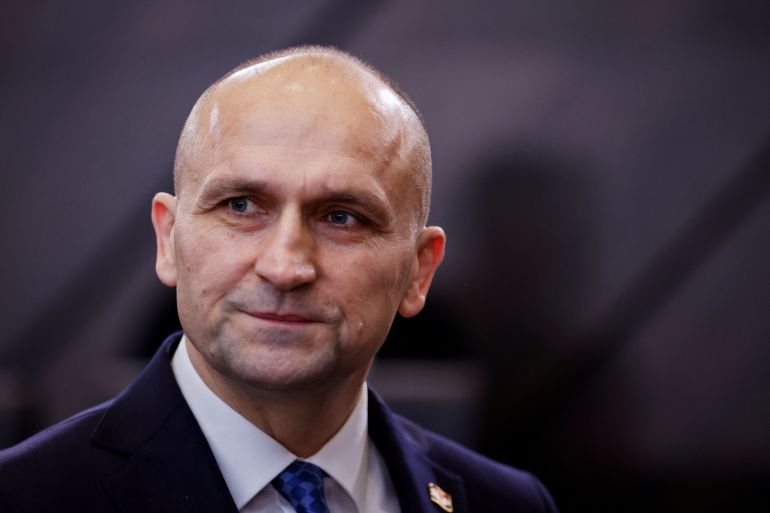Croatia reintroduces mandatory military conscription after 17 years
Defence Minister Ivan Anusic cites rise in ‘various types of threats’ amid regional security concerns and Russia-Ukraine war.

By News Agencies
Published On 24 Oct 202524 Oct 2025
Save
Croatian lawmakers have voted to reintroduce mandatory military service to boost the Balkan nation’s defence, in response to rising global tension and conflicts, including Russia’s war in Ukraine.
The parliament in the capital Zagreb approved an amendment to the law enacting the reinstatement by a large majority on Friday.
Recommended Stories
list of 3 itemsend of list
The country had abolished conscription in 2008, a year before joining NATO, in an effort to professionalise its military.
But top officials have since argued that international tensions require the restoration of basic military training to bolster Croatia’s defence forces.
“We are seeing a rise in various types of threats … that demand swift and effective action from the broader community,” Defence Minister Ivan Anusic, from the governing conservative HDZ party, told the lawmakers this week.
“In the face of any threat, defending the country is crucial.”
Approximately 18,000 men would be enlisted each year for two months of training annually as they turn 18. The initiative is expected to start next year.
Women will be exempt, while conscientious objectors will be able to serve three or four months in civil service roles, including disaster response teams.
Many hail decision
Deputies amended two laws to allow the change. A total of 84 deputies of those present in the 151-seat assembly backed amendments to the defence law, while 110 voted to amend the law on service in the armed forces.
Anusic’s department has been stepping up efforts to meet the potential challenges posed by Russia since the outbreak of the war in Ukraine three years ago.
Advertisement
Croatia also wants to be better prepared for “increasing natural disasters” and other crises with more soldiers, according to the Defence Ministry.
After the vote, people speaking to the AFP news agency on the streets of Zagreb mostly hailed the move.
“The army would bring more structure – waking up early, spending less time on phones, and learning things that are very important for life, like survival skills,” said student Luka Budiselic, 23.
Manuela Skoblar, 51, who counts two sons among her four children, said in general military training could help young generations to “ground them a bit, help them grow up and accept life as it really is”.
Regular conscripts will be paid 1,100 euros ($1,280) per month, while the amount for those serving in the alternative civil service has yet to be determined, but reports suggested it could be considerably lower.
Military conscripts will also have an advantage when applying for jobs at public and state-run institutions after their service.
Left-wing opponents said the law discriminated against women and those who chose civil protection, as they would receive a lower wage and not be afforded preferential treatment for government jobs.
The NATO member nation of 3.8 million people joined the European Union in 2013.
